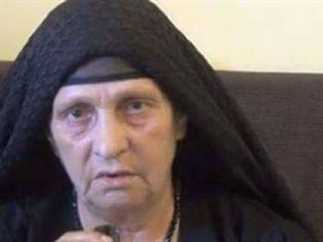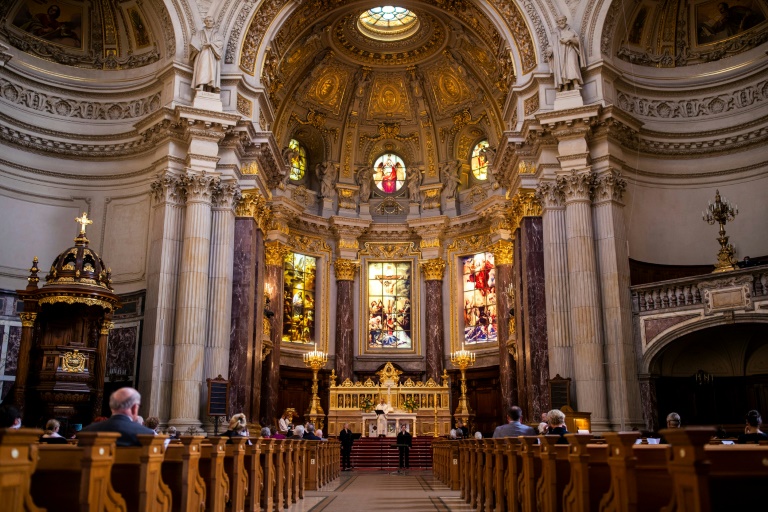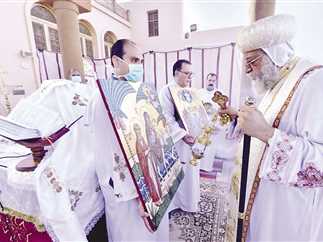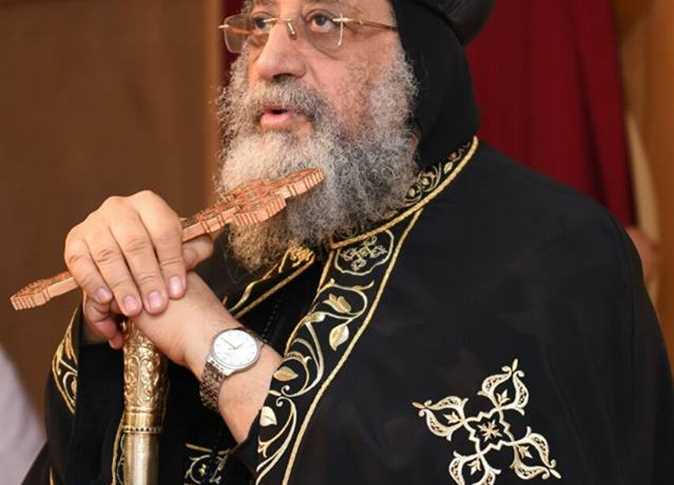All Egyptians have heard variations of the tale throughout their lives. As far back as the time of Muhammad Ali Pasha, the Bishop of Monufiya, Serapamon, was said to have cured the Pasha’s daughter of illness by making the sign of the cross over a glass of water, sprinkling her face, and then giving her a drink.
More recently, Pope Kirollos VI was said to have restored the health of President Gamal Abdel Nasser’s son, Abdel Hakim, through prayer.
In the midst of the October War in 1973, Christian soldiers were said to have observed the Ramadan fast out of respect for their Muslim peers, while commanders were said to have quoted both the Quran and Bible as they directed their forces.
The late Grand Mufti of Egypt and head of Al-Azhar, Sheikh Tantawi, was known to have grown up with Copts as neighbors, one of whom his father had as a partner in farming.
These were the parables of Egyptian nationalism — fables which, whatever their basis in fact, were considered important enough as exemplars of behavior that they were routinely trotted out by the country’s leaders at times of crisis. And since the revolution, this reservoir of images of national unity has remained in active use, with crescent and cross, Quran and Bible, Christian and Muslim often pictured together, and rapidly disseminated by Facebook and Twitter.
I once thought these images and tales less than helpful in confronting the problem of sectarianism in Egypt. Indeed, they seemed simply an attempt to paper over the fact of a widening Coptic-Muslim divide — a fact that had to be confronted head on. This was, however, before the referendum campaign, in which the parables of Egyptian national unity were well and truly cast aside by Egypt’s rulers in favor of the most crude, offensive, and frankly ridiculous allegations of sectarian conspiracy that I have witnessed in an entire career of watching and studying Coptic-Muslim relations in Egypt.
There was, for instance, the news item published in Al-Mesryoon newspaper on 5 December, which alleged a secret plan on the part of the Coptic Orthodox Church to overthrow President Mohamed Morsy. This plan, which the newspaper apparently learned from “Church sources,” was purportedly undertaken by Coptic youth, who were crafty enough to conceal crosses and other signs of their identity before they made their way to the Ettehadiya Palace.
Then there were the allegations made by the Muslim Brotherhood website on the day of the referendum’s first round, 15 December, to the effect that Copts in Sohag Governorate were distributing text messages campaigning for a “no” vote.
Perhaps most disturbing, however, were the repeated appearances by Brotherhood officials Mohamed al-Beltagy and Safwat Hegazy on the pro-Brotherhood channel Misr 25 television network and in rallies, insinuating that Christians constituted a fifth column in Egypt and that the Church was engaged in a conspiracy to destabilize the government.
One could scarcely escape the irony, after witnessing the venom with which these men had attacked Christians, that the Shura Council had appointed both of them to the state-run National Council for Human Rights. Indeed, if these men are the arbiters of human rights in today’s Egypt, one can have but little faith that the very concept of human rights retains meaning under Morsy’s rule.
One of the leading arguments for a “yes” vote in the referendum is that approving the draft constitution will return Egypt to a much-needed state of stability. Indeed, I have listened with great interest to the arguments of academic colleagues that what Egypt needs most, at this moment, is to leave its current “state of exception” — a state in which governments can expand their powers in disregard for the concepts of citizenship and the rule of law, by virtue of a purported crisis situation.
In light of the fear and division sown by the president’s colleagues, as described above, not to mention the apparent disinclination of the government to condemn, let alone halt, the recent rampages in the streets mounted by the Salafi followers of Hazem Abu Ismail, I am left to wonder whether the president actually wants an end to Egypt’s state of exception. Indeed, the politics of fear and division seem to have served the president well as he seeks to consolidate his grip on power.
In this, the only difference between Morsy and his predecessor seems to be that, where President Hosni Mubarak and his regime kept up the appearance of Egyptian national unity through the usual parables and images, Morsy cares little about such appearances.
Only time will tell how much this calculated disregard for tolerance and civility will cost Egypt.
This piece was originally published in Egypt Independent's weekly print edition.




